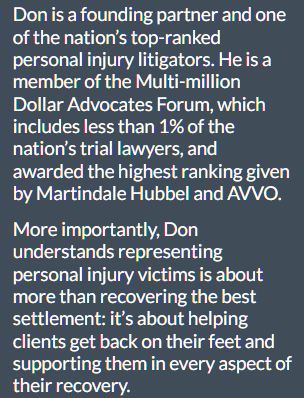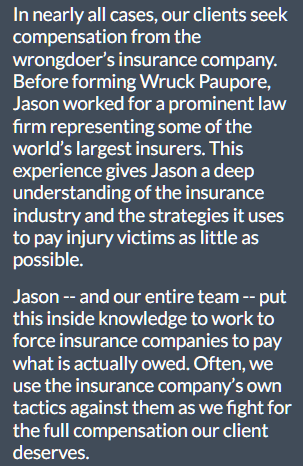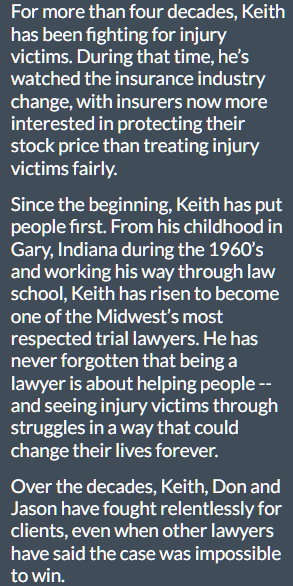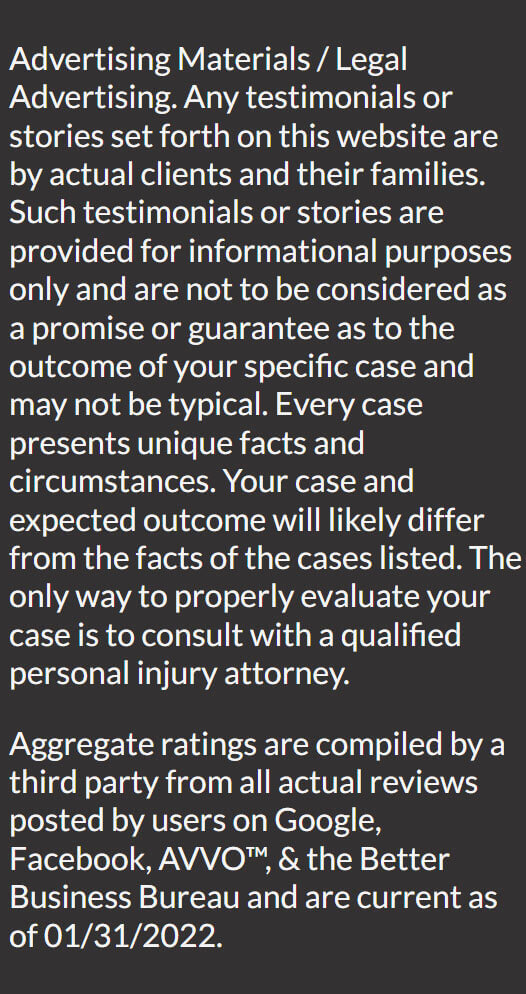




Choosing a safe nursing home for your loved one is a big responsibility, as unsafe nursing homes could put residents at risk of abuse and neglect.
When you tour a facility, gauge its staff-to-resident ratio and observe how staff interact with residents. Look for signs of cleanliness in the facility’s general environment and individual residents, as poor personal hygiene could indicate neglect. Nursing homes should offer residents enrichment and community; facilities without these priorities could be more likely locations for abuse to occur. Unsafe nursing homes might restrict residents’ contact with their families and have poor reviews or report cards, and we can help you determine if a facility has had recent complaints filed against it. Nursing homes that are unsafe and enable abuse may be liable for it and the harm it causes victims.
To discuss your case for free with Wruck Paupore’s nursing home abuse lawyers, call us today at (219) 322-1166.
Knowing the signs of safe and unsafe nursing homes is important, especially if you are considering placing your loved one in an assisted living facility. A good staff-to-resident ratio and a clean and enriching environment for seniors are paramount. If a nursing home does not encourage communication or visits with family or has a history of complaints against it, it may not be the safest facility for your loved one.
The appropriate staff-to-resident ratio will vary, depending on the unit within the nursing home and residents’ needs. When touring a nursing home with your loved one, notice how many staff members and nurses you see. Watch how they interact with residents, too. Are they kind, or are they pushy and agitated by residents? Unfortunately, many cases of nursing home abuse are perpetuated by staff. Ask the administration about the staff’s qualifications and the facility’s hiring practices in general, such as how they perform background checks.
Understaffed nursing homes may be unable to provide the care and attention residents need, including hygienic care for residents with dementia or higher need levels. Understaffed nursing homes might keep abusive workers on staff because they need workers, making these facilities liable for abuse.
A generally clean and attractive environment is a good sign of a safe and enjoyable nursing home. Look around for any obstructions that residents could easily trip over. Hallways should be clear and free from obvious hazards. If the nursing home is poorly maintained, it could indicate that staff neglects residents, so also observe residents for signs of poor personal hygiene when touring a facility.
Nursing homes should prioritize enriching residents’ lives by encouraging community building and providing various activities and engagement. When touring an assisted living facility, ask about its various programs for residents and how staff facilitates them. A lack of enrichment or socialization could lead to isolation and depression in seniors, especially if they have certain conditions like dementia or Alzheimer’s, and nursing homes should take steps to address or prevent this.
When your loved one moves into a nursing home, that facility should encourage and facilitate communications with you and other family members, making it easy for a resident to contact you whenever necessary. If a nursing home limits communication, visits, or contact with family, take it as a sign that it is not the right place for the senior in your life. If they need to contact you for any reason, such as to report abuse or other issues, they should be able to do so without restrictions.
Many states have resources families can use when deciding between nursing homes. For example, the Indiana Department of Health lets you view consumer reports for nursing homes and other healthcare facilities. You can use this tool to see considerable information about a senior living facility, such as the number of substantiated complaints against a facility and its overall report card. This information and actual reviews from residents who have lived in a nursing home can help seniors and their families choose a safe facility.
Unsafe nursing homes are not always obvious to residents and their families. Residents who experience abuse from staff members or others may be able to hold a facility accountable, and our attorneys can help victims navigate this difficult process.
Nursing homes might be unsafe in many ways. Unfortunately, touring a facility and asking detailed questions might not reveal that an abusive individual is on staff or that residents have suffered falls due to negligence. If your loved one reports abuse of any kind to you, whether it is psychological, sexual, physical, or financial, take it as seriously as possible. In these situations, it is often best to remove the resident from the facility for their safety and comfort, even if a nursing home immediately removes an abusive individual from staff.
Immediately reporting an unsafe nursing home is also important. Our Indiana nursing home abuse lawyers can help victims and their families report abuse to the Long-Term Care Ombudsman Program in their state and law enforcement if necessary.
If a nursing home is unsafe because it allowed abuse to occur, it may be liable for the victim’s damages. This includes any financial expenses, such as medical treatment, therapy, or other care costs. Nursing homes breaching their duty of care and breaking the trust of residents can cause considerable pain and suffering for victims, especially those who have experienced abuse. Our lawyers may also seek non-economic damages in claims against negligent facilities in these situations.
Call Wruck Paupore’s Indianapolis nursing home abuse lawyers at (219) 322-1166 for help with your case today.
Don is a founding partner and one of the nation’s top-ranked personal injury litigators. He is a member of the Multi-million Dollar Advocates Forum, which includes less than 1% of the nation’s trial lawyers, and awarded the highest ranking given by Martindale Hubbel and AVVO.
More importantly, Don understands representing personal injury victims is about more than recovering the best settlement: it’s about helping clients get back on their feet and supporting them in every aspect of their recovery.

In nearly all cases, our clients seek compensation from the wrongdoer’s insurance company. Before forming Wruck Paupore, Jason worked for a prominent law firm representing some of the world’s largest insurers. This experience gives Jason a deep understanding of the insurance industry and the strategies it uses to pay injury victims as little as possible.
Jason -- and our entire team -- put this inside knowledge to work to force insurance companies to pay what is actually owed. Often, we use the insurance company’s own tactics against them as we fight for the full compensation our client deserves.

For more than four decades, Keith has been fighting for injury victims. During that time, he’s watched the insurance industry change, with insurers now more interested in protecting their stock price than treating injury victims fairly.
Since the beginning, Keith has put people first. From his childhood in Gary, Indiana during the 1960’s and working his way through law school, Keith has risen to become one of the Midwest’s most respected trial lawyers. He has never forgotten that being a lawyer is about helping people -- and seeing injury victims through struggles in a way that could change their lives forever.
Over the decades, Keith, Don and Jason have fought relentlessly for clients, even when other lawyers have said the case was impossible to win.


© 2025
Terms of Service | Privacy Policy | Resources | Blog | Sitemap

© 2022 Wruck Paupore PC
Terms of Service | Privacy Policy